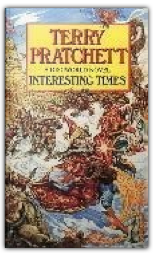
Marvellous Discworld, which revolves on the backs of four great elephants and a big turtle, spins into Interesting Times, the 17th outing in Terry Pratchett's rollicking fantasy series. The gods are playing games again, and this time the mysterious Lady opposes Fate in a match of "Destinies of Nations Hanging by a Thread". —Blaise Selby 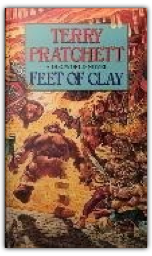
In Feet of Clay, Terry Pratchett continues the fantasy adventures on Discworld—where anything goes. Anything but murder, that is. Commander Vimes of the Watch must investigate a puzzling series of deaths, with help from various trolls and dwarfs. Pratchett's humour and excellent writing skills draw the reader effortlessly into his zany world. Feet of Clay is 19th in the series. —Blaise Selby 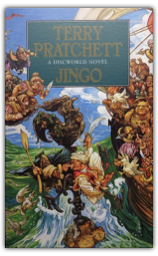
Jingo is the 20th of Pratchett's Discworld novels, and the fourth to feature the City Guard of Ankh-Morpork. As Jingo begins, an island suddenly rises between Ankh- Morpork and Al-Khali, capital of Klatch. Both cities claim it. Lord Vetinari, the Patrician, has failed to convince the Ruling Council that force is a bad idea, despite reminding them that they have no army——"I believe one of those is generally considered vital to the successful prosecution of a war." Samuel Vimes, Commander of the City Watch, has to find out who shot the Klatchian envoy, Prince Khufurah, and set fire to their embassy, before war breaks out. 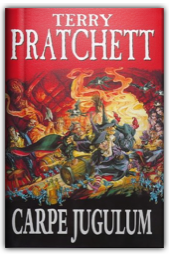
Carpe Jugulum is the 23rd Discworld novel, and with it this durable series continues its juggernaut procession onwards. Pratchett is an author who inspires such devotions that his fans will fall on the novel with cries of joy. Non-fans, perhaps, will want to know what all the fuss is about; and that's something difficult to put into a few words. The best thing to do for those completely new to Pratchett is to sample him for themselves, and this novel is as good a place to start as any. But fans have a more precise question. They know that Discworld novels come in one of two varieties: the quite good, and the brilliant. So, for instance, where Hogfather and Maskerade were quite good, Feet of Clay and Jingo were brilliant. While true fans wouldn't want to do without the former, they absolutely live for the latter. And with Carpe Jugulum Pratchett has hit jackpot again. This novel is one of the brilliant ones. 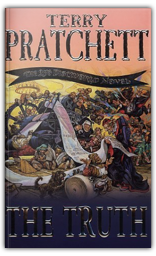
The Truth is Terry Pratchett's 25th novel about Discworld in general and the dirt-encrusted metropolis of Ankh-Morpork in particular—home of the sinister Patrician, the Unseen University of magicians and guilds for everything from Assassins to Thieves, taking in Clowns (but not mimes) along the way. Ankh-Morpork has weathered several influxes of technology in its time—a demon-inspired invention of the movies, the brief fad for Music with Rocks in it—and now it has acquired a free press, dedicated newshounds, dwarf printers with not especially nasty tempers (for dwarves), and people who want to see their amusing vegetables in the "On a Lighter Note" section. The business of politics (attempts by the old aristocracy to unseat the Patrician) is ratcheted up a notch and Vimes, of the City Watch, is in a worse temper than usual. William de Worde, editor, reporter and investigator, is another attractive Pratchett hero, captured for us in the middle of wonderfully parodied routines from old movies and fiction that he, in his world, is doing for the first time. This is inventive farce with touches of high seriousness and ethical good sense, and two of the nastiest doomed hitmen outside Tarantino. —Roz Kaveney 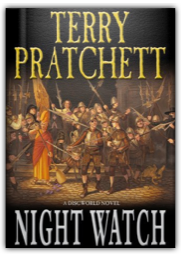
The new Discworld novel Night Watch has the power and energy that characterizes Terry Pratchett at his occasional best, as well as the wild surreal humour he always gives us. Sam Vimes, running hero of the Guards sequence, finds himself cast back in time to the Ankh-Morpork of his youth—a much nastier city, with an actively deranged Patrician and a sadistic secret police—and finding himself filling in for Keel, the tough honest copper who teaches the young Vimes everything he knows. And, more worryingly, who dies heroically in the insurrection Vimes knows to be imminent. With a psychopath from his own time rising in the vile ranks of the Cable Street Unmentionables complicating things, Vimes has to ensure that history takes its course so that he will have the right future to go back to, and to keep his younger self alive—this is Pratchett's plotting at its most thoroughly constructed and wonderfully devious. Ankh-Morpork has for a long time been one of the most thoroughly imagined cities in fantasy—here Pratchett gives us a fascinating gloomy glimpse of its past and of the younger selves of some of his best-loved characters, and of the brief-lived People's Republic of Treacle-Mine Road. —Roz Kaveney 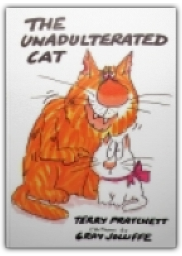
Terry Pratchett took a side step away from Discworld in The Unadulterated Cat, a hilarious insight into the world of the feline. Amusingly illustrated by cartoonist Gray Jolliffe, Pratchett delivers a wonderfully funny collection of anecdotes that anyone, cat owner or not, will be hard pressed not to smile at. Not quite a replacement for a Discworld novel, but your sides will split just the same. —Jonathan Weir 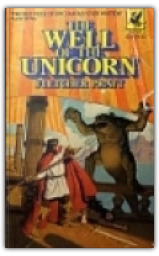
Robbed of lands and heritage by the rapacious Vulkings, young Airar Alvarson had only his limited gift for sorcery to aid him against a world of savage intrigues. Then he met a mysterious sorcerer and was given a strange iron ring — a ring that led him into a futile conspiracy and soon had him fleeing for his life. 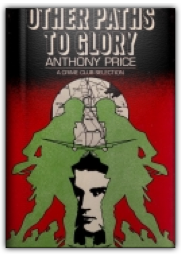
Paul Mitchell spends his days locked in the past researching World War I. Until, that is, the present catches up with him in the shape of Dr Audley of the MoD. Why does Audley want to know the truth about the battle for Hameau Ridge on the Somme in 1916? The answer is complex and dangerous. 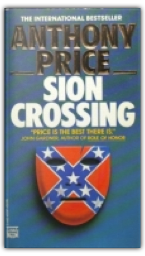
In this, the author's 14th David Audley novel, Oliver St John Latimer - the Deputy-Director of the Research and Development Section of British Intelligence - is sent to deepest Georgia. Here he follows in the footsteps of General Sherman's troops to the Sion Crossing ruins, with fearful results. 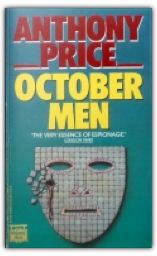
Dr David Audley is in Rome without authorization and alarm bells start to ring in British Intelligence. The head of Italian security is also interested in his arrival, particularly as it has flushed from cover a rogue communist. The author won the CWA's Gold Dagger Award for "Other Paths to Glory". 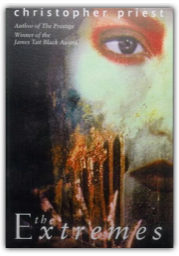
Dunblane, Port Arthur and Hungerford will be places known to many of us because of the apparently random mass shootings that have happened there in recent years. The Extremes is a book about such violence—it—it's horror, the sheer bad luck of being its victim, and the anguish it causes to those left behind. It is also a book about virtual reality, and is set in a not-so-distant future in which events of violence can be experienced by anyone prepared (or able) to pay for the privilege. 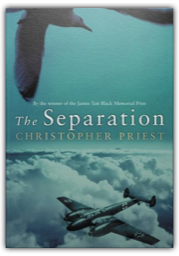
Christopher Priest excels at rethinking SF themes, lifting them above genre expectations into his own tricky, chilling, metaphysically dangerous territory. The Separation suggests an alternate history lying along a road not taken in World War II. But there are complications. |
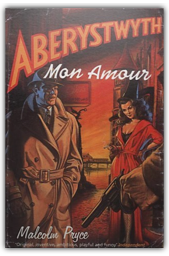
Malcolm Pryce's witty and scabrous comic thriller Aberystwyth Mon Amour is an original and diverting entry into the field of black-comedy writing—a genre which has enjoyed a long and healthy lineage, from Voltaire through Evelyn Waugh to the present day although lately it is pretty well the preserve of crime fiction. Making the unexciting Welsh town of Aberystwyth seem as fascinating and dangerous for his hardboiled 'tec as the mean streets of Raymond Chandler's Los Angeles is a daunting task but it's a trick Pryce pulls off with considerable aplomb. 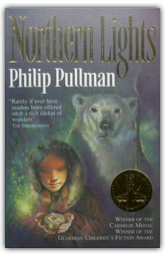
Lyra's life is already sufficiently interesting for a novel before she eavesdrops on a presentation by her uncle Lord Asriel to his colleagues in the Jordan College faculty, Oxford. The college, famed for its leadership in experimental theology, is funding Lord Asriel's research into the heretical possibility of the existence of worlds unlike Lyra's own, where everyone is born with a familiar animal companion, magic of a kind works, the Tartars are threatening to overrun Muscovy, and the Pope is a puritanical Protestant. Set in an England familiar and strange, Philip Pullman's lively, taut story is a must-read and re-read for fantasy lovers of all ages. The world-building is outstanding, from the subtle hints of the 1898 Tokay to odd quirks of language to the panserbjorne, while determined, clever Lyra is strongly reminiscent of Joan Aiken's Dido Twite. 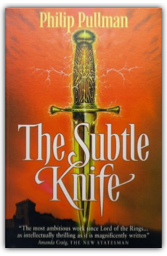
At the end of The Northern Lights, Lyra Silvertongue watched in fear and fascination as her father, Lord Asriel, created a bridge between worlds. Lyra and her daemon, Pantalaimon, are now lost in an alternate universe where they meet Will Parry, a fugitive from a third universe. Will has found a small window between Cittagazze (a place where children roam unchecked but invisible Specters suck the spirit out of adults) and his Oxford, which, with its Burger Kings and cars, is frighteningly different from the Oxford Lyra knows. 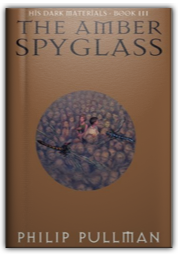
Philip Pullman brings The Amber Spyglass to the spellbinding "His Dark Materials" sequence, which dazzles everyone who reads it, children and adults alike. After the original Northern Lights, he kept up the quality in The Subtle Knife, the second title in the trilogy. Now he brings the series to an extraordinary conclusion. Will and Lyra, the two children at the heart of the books, have become separated amidst great dangers. Can they find each other, and their friends? Then complete their mysterious quest before it's too late? The great rebellion against the dark powers that hold Lyra's world, and many others, in thrall is nearing its climax. She and Will have crucial parts to play, but they don't know what it is that they must do, and terrible powers are hunting them down. 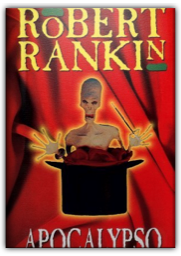
Robert Rankin's comic fantasies have a laddish good humour which rely heavily, if not excessively, on teasing, class and beer. His protagonists are always forced to compete in a world in which someone else has a silver spoon in their mouth; they muddle their way through his amiably Heath-Robinsonish plots by a mixture of chutzpah, bluster and endurance. Porrig, hero of Apocalypso has a bad attitude that makes even his parents dislike him, but he inherits a shop from a conjuror uncle—a shop which serves as a gateway to other worlds. Not only has he to redeem his uncle from damnation, he also has to save the world from an unpleasant alien vegetable with the power to cloud human minds. Amid all this, we find out what Nelson's Column is for, why railway ticket clerks take so long to sell tickets and the secret that lurks under Mornington Crescent Underground Station. Rankin's humour is a scatter-shot that misses targets as often as it hits, but his unabashed preparedness to use old jokes and the crudest of slapstick is part of a shaggy-dog enthusiasm that is more endearing than otherwise. —Roz Kaveney 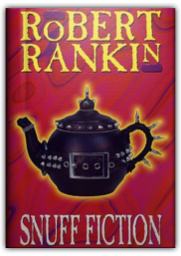
Ever since his comic-sinister debut The Antipope—published for the first time in 1981, or 2 BD(Before Discworld)—Robert Rankin has repeatedly returned to that most haunted region of mythic England: Brentford. Snuff Fiction is the biography of local entrepreneur Doveston (1949-2008) as seen by lifelong friend and enemy Edwin, beginning with richly comic evocations of 1950s schoolboy folklore. Like lurking water-vipers in the park: "If you took a piddle in the boating lake, they would swim up the stream of pee and enter your knob." Doveston's insanely ambitious schemes begin with house-wrecking dope parties and the doomed 1967 Brentstock rock festival, with Edwin the scapegoat for every disaster. Those resisting the inexorable Doveston rise to wealth and power have accidents involving dynamite. Presently he's making nefarious deals with our secret Government, culminating in a millennium party at Castle Doveston where celebrities like Michael Jackson meet sticky ends. Rankin produces a fascinating flow of misinformation about puberty, gypsies (native language Esperanto), yo-yos (is there a manoeuvre called "splitting the beaver"?), Brentford's many ethnic quarters (e.g. Mexican, Navajo, Kalahari Bushmen), rhyming slang (Richard= Richard Dadd= mad) and snuff-sniffing. The awful secret of the Millennium Bug is revealed. Uninhibitedly anarchic farce, full of bizarre verbal inventiveness and dreadful old jokes. Read it and sneeze. —David Langford 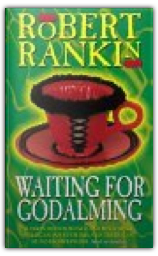
Robert Rankin's wondrously oddball fantasies have caused addicted readers' heads to spontaneously explode on five separate continents, most of them in Brentford. Some call him the Terry Pratchett of seedy suburbia, but only if they want a punch in the chops... 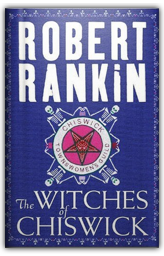
Robert Rankin's fondness for demented conspiracy theories is complicated by time travel in The Witches of Chiswick—which demonstrates again that everything you know is wrong, that Brentford is the true centre of the multiverse, and that nobody is quite as weird as Robert Rankin. 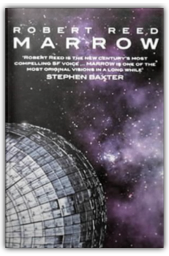
Set on an ancient starship as big as Jupiter, Marrow is epic hard science fiction with a millennia spanning plot. A near immortal, genetically re-engineered humanity is the first to reach the derelict ship, approaching from the emptiness of intergalactic space. Taking command, the captains set the ship on a half-million year long galactic cruise, opening the vessel to thousands of races and playing host as in Babylon 5. The ship itself demands parallels with Arthur C Clarke's Rama from Rendezvous with Rama though Reed offers literally bigger surprises..."Just tell us please... what in hell is down there?" 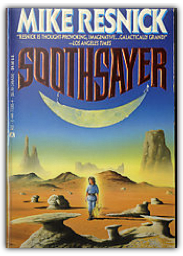
Mouse, a hard-bitten, cynical woman and professional thief, finds herself in deep trouble when her attempt to rescue a seemingly helpless little girl has potentially deadly consequences in this brilliant and haunting installment of Santiago-inspired adventure. Young Penelope has long had a price on her head, and Carlos Mendoza now knows how she has outwitted her captors—and the awesome powers behind her success. As Carlos moves in for the kill, Mouse is hard-pressed to preserve her life, defend Penelope, and in so doing, save humanity. For Carlos "Iceman" Mendoza, only one thing becomes clear: in a universe of giant men, ruthless bounty hunters, and interstellar war, his greatest fear is this one girl. 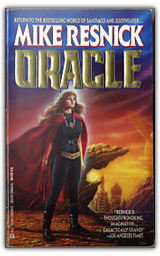
Grown to womanhood and residing on the planet Hades, feared oracle Penenlope Bailey becomes the prey of a bounty hunter, a government agent, and an outlaw cyborg. |

Mike Scott
Collection Total:
4227 Items
4227 Items
Last Updated:
Feb 21, 2010
Feb 21, 2010

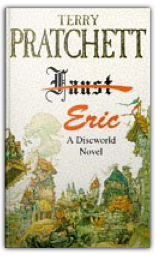
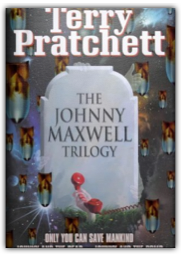
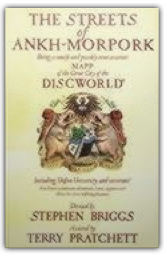
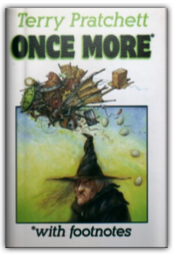
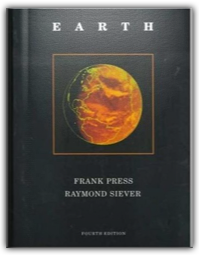
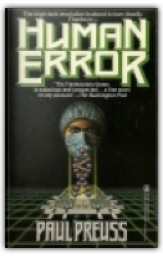



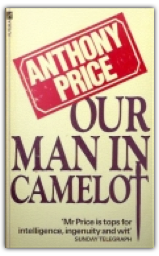


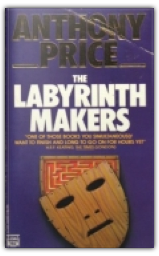
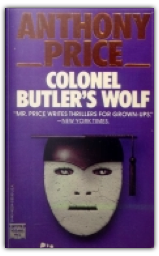
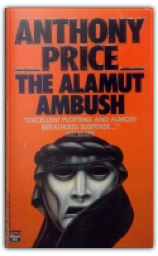
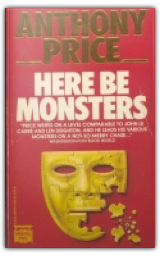

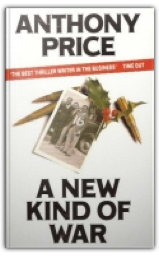

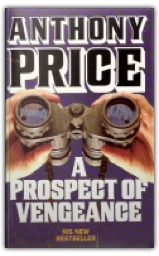
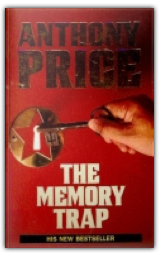
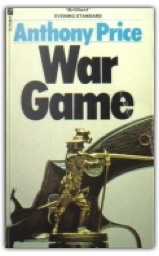
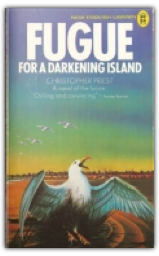
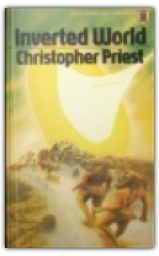
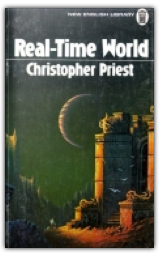
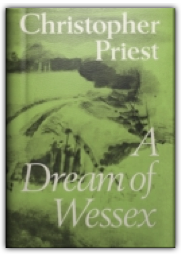
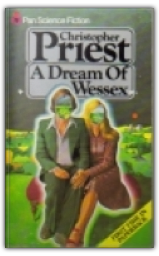
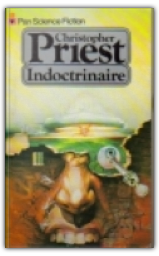
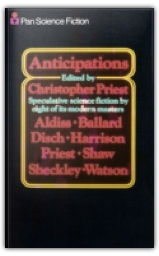
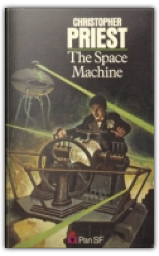
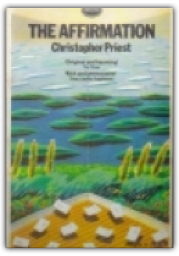
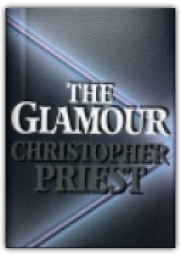
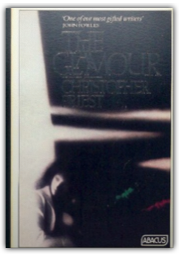
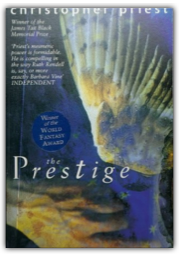
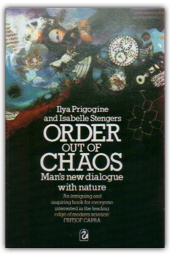

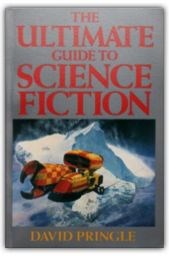
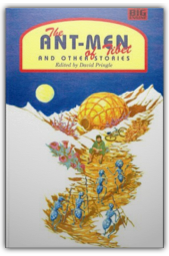

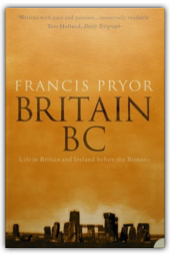
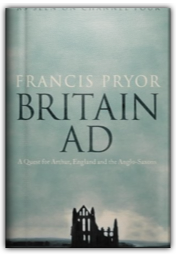
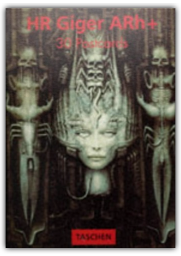
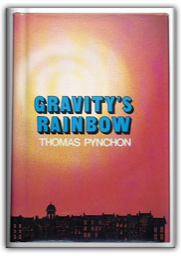
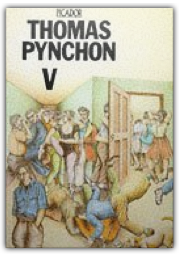
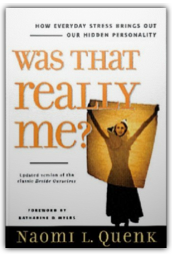

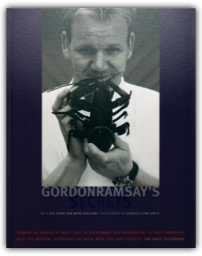
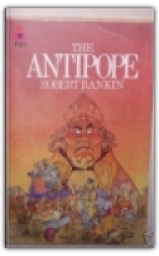
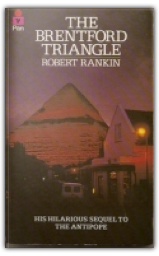
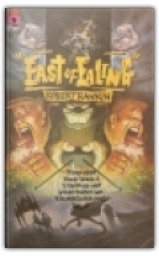
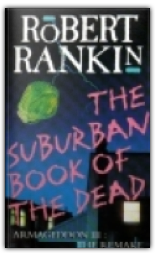
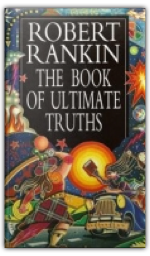
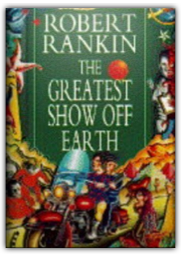
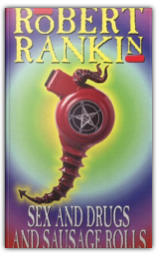
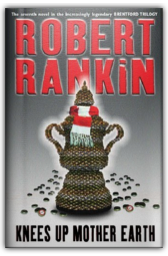
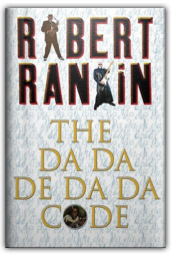
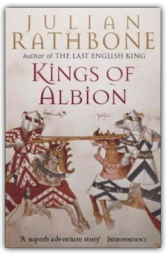
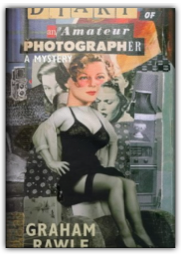
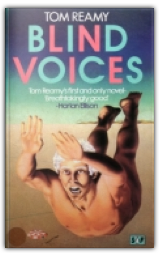
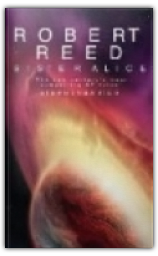
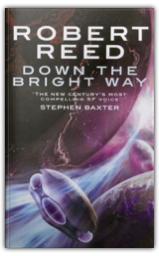
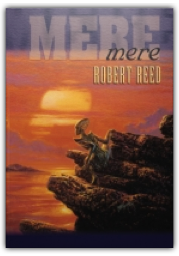
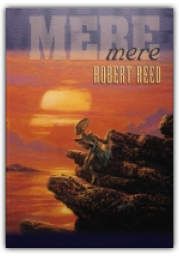
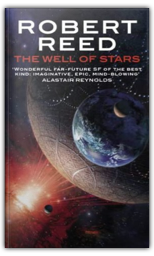
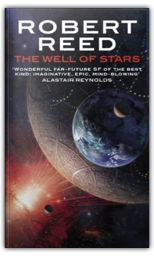
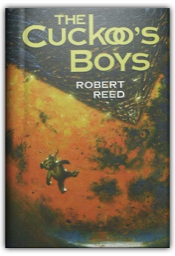
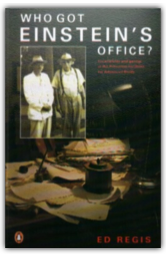
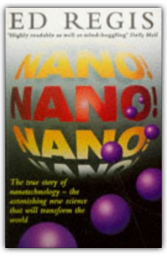
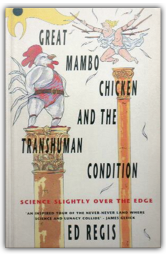
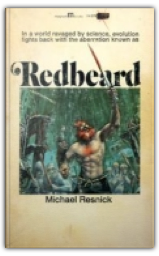
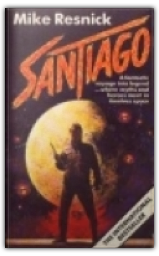
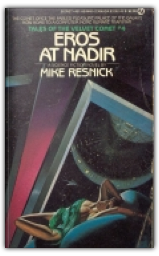
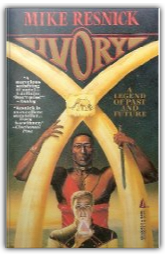
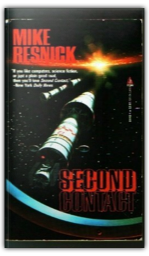
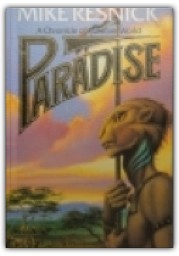
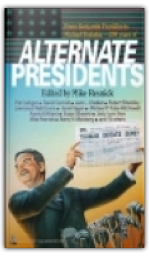
 Made with Delicious Library
Made with Delicious Library